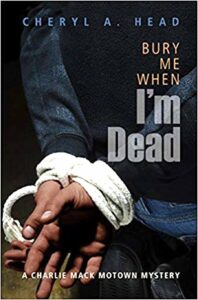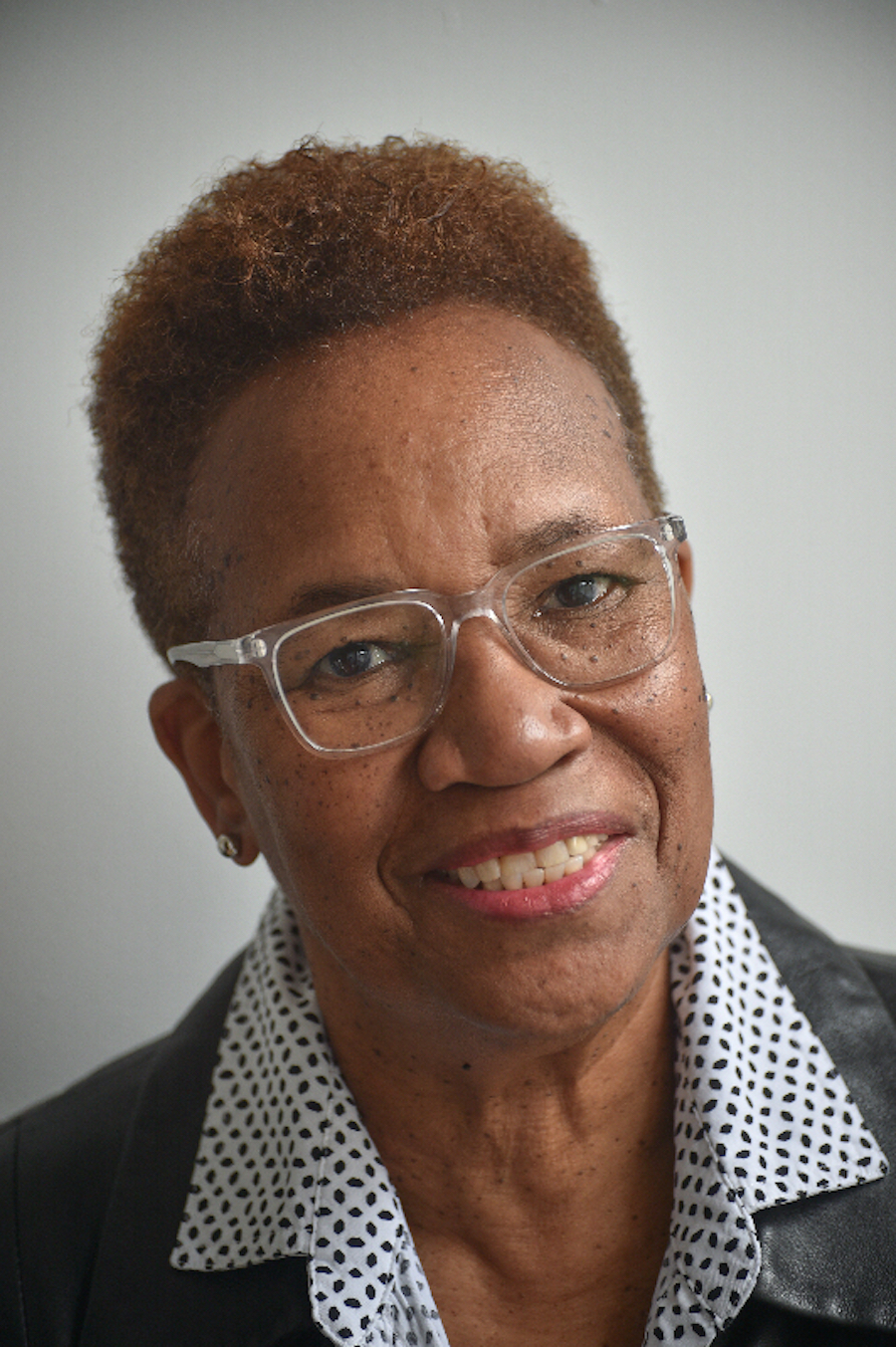By MB Austin
Cheryl Head is the author of the Charlie Mack Motown Mystery series. Charlie, the named partner in Charlene Mack Private Investigations, runs the Detroit firm with two other ex-law-enforcement professionals. In the first novel, Bury Me When I’m Dead, they travel to Alabama in pursuit of a suspected embezzler and tangle with a murderer. In the second, Wake Me When It’s Over, a suspicious death that may be linked to industrial espionage brings Charlie and her team the formidable task of protecting the Detroit Auto Show from the threat of a terrorist attack.
As we ride along on Charlie’s fascinating and often dangerous work days, her professional relationships with Gil and Don (and others on her staff and in her community) reveal her intelligence, compassion, and integrity. Charlie’s relationship with her aging mother, her ex-husband, and her girlfriend Mandy Porter give us additional insights. Since these are crime stories and not romances, we aren’t guaranteed a tidy happy ending with Mandy. Instead, the realistic development of this relationship makes Charlie a character many bi+ women will find easy to relate to.
You can find the novels at Bywater Books and at all book vendors. To learn more about Cheryl’s own intriguing background and other work, visit http://www.cherylhead.com.
MB: Reading the first Charlie Mack mystery, I felt as if I had just walked in on one moment in the characters’ lives—and that you know what they were doing all the years up to that time. (None of them feel like placeholders or props.) How do they become real to you?
CH: My characters must be real for me, so I can write dialogue that seems authentic to their voices. That’s especially true for the principals in the series: Charlie, her partners, her new lover Mandy, and her mother. Each of those characters has something in their personality that’s an aspect of Charlie’s own personality. When I’m lucky, my characters tell me things and “gift” me their dialogue. That’s when I fall in love with them.
MB: In the cast of characters, we see a reflection of the diverse population of Detroit (and other parts of the U.S.). And each character feels very much like an authentic individual. How do you get inside the heads of those with backgrounds different than your own and bring the realities of their lives and perspectives forward?
CH: Diversity is very important to me. Understanding it, celebrating it, following in the dynamic stream where it travels. I’m fascinated with what makes people tick. If I could have a superpower, I might want to be an empath—you know, like Spock when he does a mind meld. Ha ha. Even the secondary and tertiary characters are important to me, and are compilations of people I know, have worked with, or have run across—their mannerisms, dress, world perspectives. I want readers to recognize the frailties, biases, fears, prejudices, and hopes all human beings share from time to time. To understand my characters, I usually just sit with them—sometimes a long time; and in a few cases, they come to me whole. In my first book, which was a coming-of-age novel set during World War II, one of the characters literally woke me up from sleep to reveal who he was.
MB: Charlie does not doubt how she feels about Mandy Porter; but falling in love with her unsettles Charlie on several levels. There’s the changing of her own idea of who she is; changing how her community sees her; and deepest down, being scared to love fully.
CH: Yes. You’ve captured her struggle. She also eschews the labels around sexual preference. But being afraid to fully love herself is her greatest challenge. In the series, Charlie will be presented with constant opportunities to witness, and experience, various presentations of love. I hadn’t realized that’s what I was doing at first. I was more conscious of showing her ability to be empathetic. But what I’m doing in developing her character is to move her along the path of accepting her own, complex feelings about her sexuality. To feel okay about them, as one facet of her uniqueness, so she can enjoy success in all parts of her life.
MB: Charlie Mack is so cool, some readers will want to be her when they grow up. Some will want to date her. And some will want to be her friend. What aspirations did you have for Charlie when you dreamed her up?
CH: She is cool, isn’t she? An overachiever, smart, a good human being, and as one of my favorite songwriters has penned: “able to leap over bullshit in a single bound.” I want to be Charlie too. I am her in many ways. But she’s a better version of me. My aspirations for Charlie are to present her in a way that gives readers additional insights into what it is to be a black woman in America. We are not all the same, and I hope readers will embrace that diversity.
MB: Can you give us any hints about Charlie’s next adventure?
CH: Book 3 finds Charlie taking on an informal case that escalates into a full investigation of the murders of the homeless in one of Detroit’s iconic neighborhoods. Book 4 is set within a grand jury trial setting. There’s always mischief afoot in Detroit. The most revealing storyline in the next two novels is the trajectory of Charlie’s relationship with Mandy. Wake Me When It’s Over has a bonus chapter that tees up the internal conflict Charlie still carries around her feelings for Mandy.
Writer MB Austin has been bi all of her life, and graced by the love of her wife for half of it. Her first two Maji Rios thrillers, Strictly Need to Know and Running Off Radar, are available from Bold Strokes Books and everywhere books are sold. Learn more at www.mbaustin.me.


